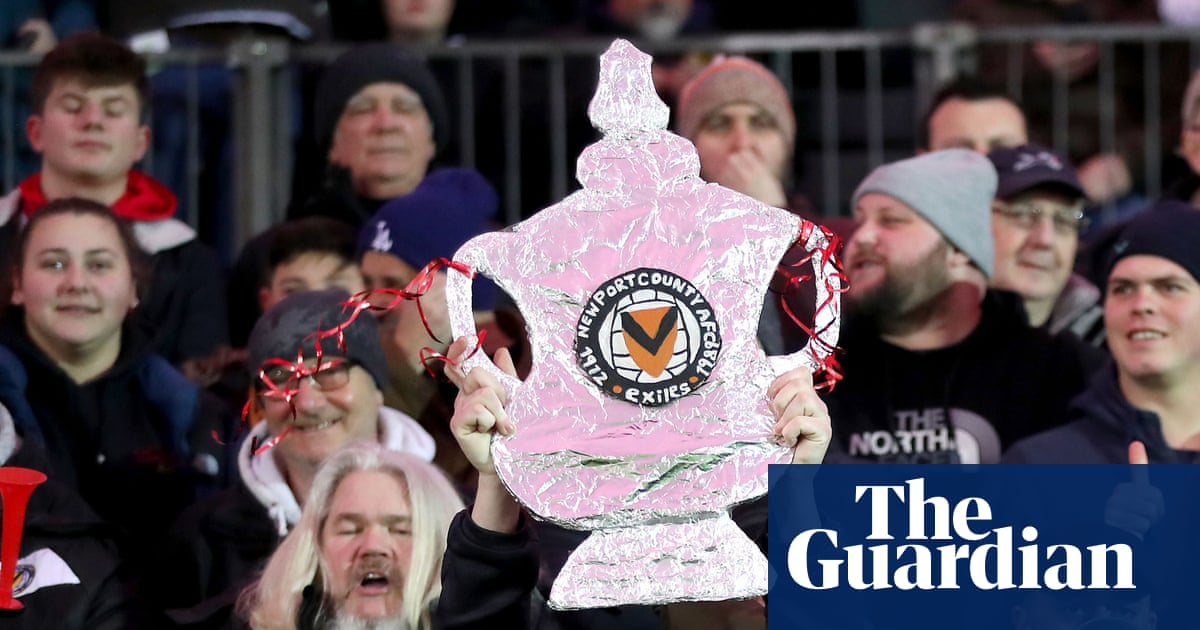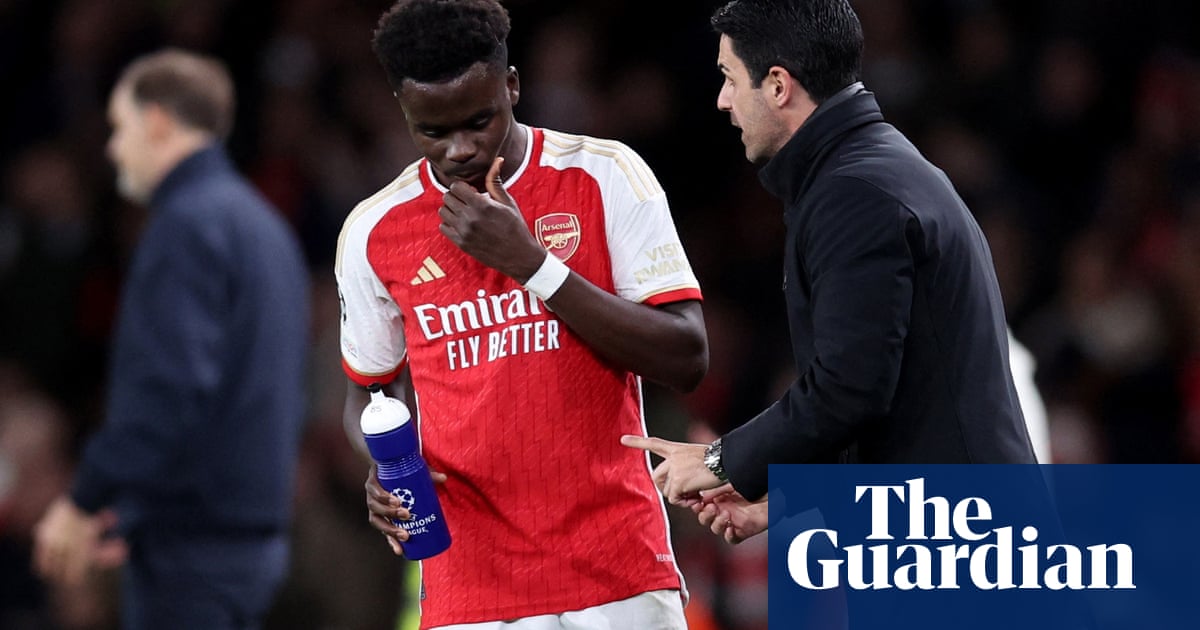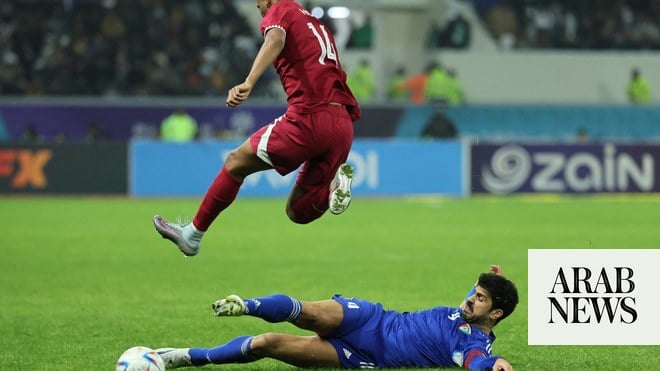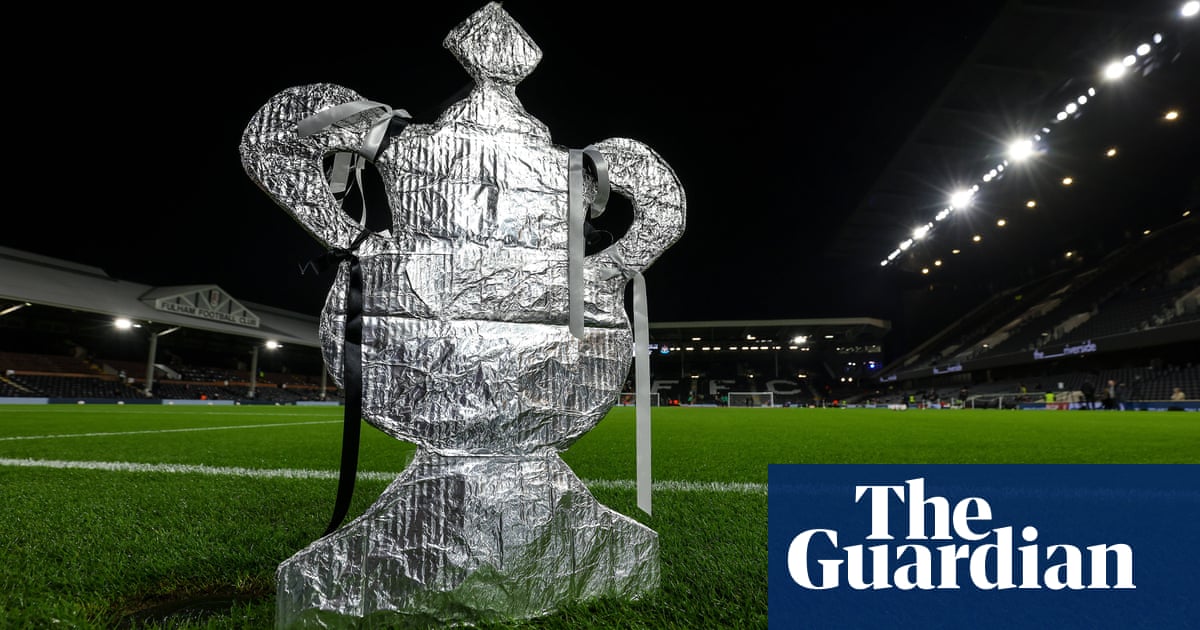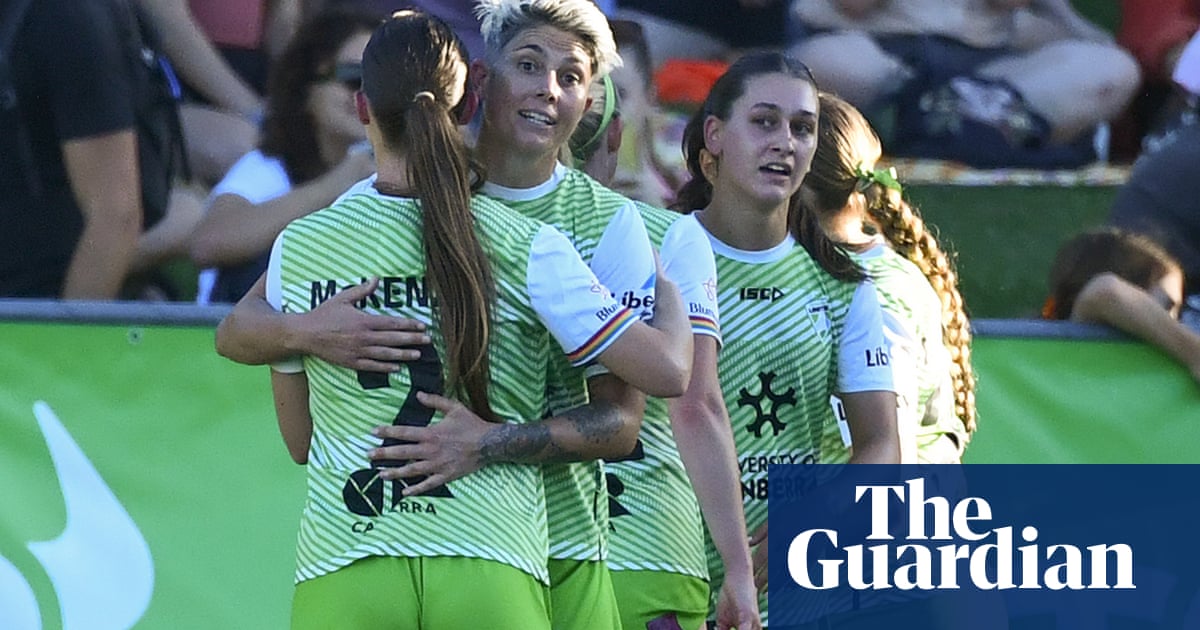
Fifth-tier Wealdstone defeated Premier League Southampton 3-1 on Tuesday night: a remarkable result at first glance but one that came with caveats.
Southampton Under-21s went to north-west London to play Matt Taylor’s heavily rotated Wealdstone in the National League Cup at Grosvenor Vale. The competition was revived last month with a 32-team, four-group format featuring 16 sides from Premier League 2, and 16 from the league’s fifth rung.
Taylor, whose side are 22nd of 24 in the National League, made eight changes from their 2-0 victory at Aldershot last Saturday, including four trialists in a 17-man squad. Nevertheless it was a hungry and physically dominant display from the hosts.
They went ahead early via a sweet finish by the No 9 Sean Adarkwa before Henry Sandat doubled the lead after half an hour. Elliot Thorpe’s emphatic strike made it 3-0 soon after the break as it emerged the Saints youngsters, on this occasion, could not do it on a cold Tuesday night in Ruislip. Brandon Mason was an assured presence in Wealdstone’s defence, terminating one Southampton counter with a sensational sliding tackle on Derrick Abu.
If the objective is to give young players at Premier League clubs a taste of senior football against hardened opposition, then, it would appear to be working. A prize fund of £1m will be shared among the National League clubs, not only those participating, including the 48 in the north and south divisions below the fifth tier. (Details have not been released – but how far will £1m go among that number of clubs?)
The relaunched competition has been controversial and has faced criticism from some of those it apparently aims to benefit. Barnet, Eastleigh, Solihull and Southend declined to take part and Reading withdrew because of “higher than expected demands on the squad”.
Eastleigh announced their withdrawal by questioning why they would help Premier League clubs nurture young talent when, they said, “no compensation” is forthcoming when their academy players depart for bigger clubs.
It would be illogical for them to do so, Eastleigh argued, also saying financial rewards for participation were “negligible”. Extra fixtures would be problematic, they said, adding: “We don’t believe there is a huge demand for the competition from our supporters.”
That was a fair point. Crowds have been derisory, with only 160 supporters witnessing Wealdstone’s win over Saints. There were 317 to see Brighton Under-21s’ 3-2 win at Aldershot on Bonfire Night and 414 at Boston United for a 1-0 win against Sunderland Under-21s the next day.
“I understand their view,” Taylor said of Eastleigh’s stance. “But at the same time I understand where this football club is financially. We need the revenue from this competition.”
Despite low attendances, Taylor believes the prize fund makes it all worth it. “Yes, without a shadow of a doubt,” he said. “I understand that other clubs don’t want to help Premier League teams, but I come at it from a slightly different perspective.
“I’ve worked in a Category 1 academy. To help their development I think it’s a great competition. What they’ve faced against us this evening they won’t get in Under-21s football.”
Simon Rusk, the Southampton Under-21s manager, was equally positive. “It’s interesting for us,” he said. “We get a different type of challenge, individually and collectively. Balls in behind, the physical challenge on set pieces where the lads need to battle.”
Rusk acknowledged Taylor’s selection that so starkly contradicted the Premier League’s September announcement that “first team” National League sides would take part. “There’s a reality to it,” he said. “Having been a first-team manager myself, this would be about game time for others. But for us it’s a gift.”
The reality is that in a packed season, overstretched National League clubs will rotate to manage resources. Injuries sustained competing in a relatively unimportant competition are the biggest fear. “What we can’t do is stress our players Saturday-Tuesday throughout the season,” said Taylor.
Dorin Gisca – originally from Moldova and now a loyal Wealdstone supporter who brings his children to every home game – remains sceptical. “I’m not sure about it because we have to be realistic,” he said before Tuesday’s kick-off. “This year we have to stay up, we need all the players fit. As it stands we are struggling. It’s only my opinion but I don’t think taking part in this competition is a good idea.”
At half-time a Wealdstone source, who asked not to be named, gave a convincing explanation for the competition’s existence. “It’s a sweetener for getting rid of the FA Cup replays,” he said. “Ninety-five per cent of National League clubs were opposed. And why did they stop replays in the first and second rounds, when they don’t impact Premier League clubs? It was illogical but with this they are saying: ‘Don’t worry guys, we have found some more money for you.’”
It seems clubs such as Wealdstone feel obliged to participate for extra revenue in the absence of potentially lucrative, not to mention life-affirming, FA Cup replays they previously had the chance to earn. Weston-super-Mare’s recent 1-1 draw in 90 minutes at Bristol Rovers would have been one such example, but in the new format, they eventually lost in extra time.
All this arguably ignores the fact that football is part of the entertainment industry. What could be termed a glorified training match in front of a handful of fans is obviously a poor substitute for a blood-and-thunder FA Cup tie. Asked for comment on Tuesday, the Premier League pointed to its September announcement. Does the National League Cup deserve its place in an already congested calendar? It depends who you ask.
This article was amended on 14 November to reflect the four clubs who declined their National League Cup invitations.




